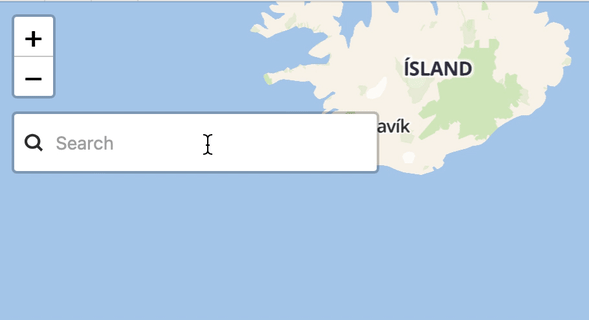Generally Available: Geocoding & Autocomplete Search with SDKs
We are excited to announce the immediate general availability of Stadia Maps Geocoding & Autocomplete Search APIs, the next step as we build the Alternative Location Platform. With these APIs, developers can create all-new user experiences critical for many products. Starting today, it is easier to solve key back-office problems such as finding the geographic location of an address, converting between natural-language input and geographic coordinates, and adding autocomplete search for even better and more immersive map experiences. As with all our APIs, these solutions combine the power of open data and open-source software and run on the same infrastructure platform as our existing reliable, affordable, and private location services.
To create the best available library of global places, we combined multiple open data sets, including OpenStreetMap, OpenAddresses, and more into one coherent API. Developers can rely on flexible filtering options to limit searches by country, bounding box, and more. When integrating, the rich API responses provide all the required data, with no extra work.
Continuing our tradition of building on open source, we started by building on the excellent work of the Pelias project and its team. We then connected it with our existing services—with many more integrations planned, and we added our own Stadia twist. We will contribute improvements and bug fixes back to Pelias and other projects so that everyone can benefit.
Forward & Reverse Geocoding
Developers around the world use forward and reverse geocoding to help users and computers work with geospatial data.
Geocoding provides conversion between places described by natural language, such as addresses, points of interest, or
city names, and geographic coordinates, such as 35.6895, 139.69171.
For the developer adventuring into the unknown, our address search is complemented by intelligent approximation. This allows for a high-probability result, even for addresses that aren’t on the map. Using this, last-mile delivery and other services are able to ensure deliver of a package to even the newest apartment building.
If your data is already structured, such as input from an address form, the Structured Geocoding API provides the same geocoding capabilities as the standard endpoint. This API enables easy lookups based on labeled fields such as city, street, and country, and improves the quality of results when there are only a few inputs available.
Autocomplete Search

Developers and users are familiar with the ubiquitous autocomplete search box on maps. By adding support for search-as-you-type functionality, Stadia Maps enables a range of user experiences. These include autofilling address forms for e-commerce and creating interactive map integrations that make it easy for users to find places anywhere in the world.
Our users have long requested search functionality for direct integration into maps. Using our new APIs and integration for MapLibre GL JS, developers can quickly build a map with a search box for any platform.
SDKs
To make it easier for everyone to integrate these new APIs, we've developed SDKs. Today, we're launching the TypeScript (JavaScript) SDK and the Python SDK, which support geocoding, routing, and a few other APIs. We plan to add Kotlin and more in the near future.
Want to see a SDK in your favorite language? Drop us a line to help us prioritize which SDKs to build next!
Pricing
In alignment with our mission of making maps affordable and transparent, we have set competitive prices for our new Geocoding & Autocomplete Search APIs. Each request uses 30 credits, with precise costs depending on the plan you select and your specific usage.
Autocomplete Search is available on all plans—including our Free plan! However, Geocoding endpoints (forward, reverse, and structured) require a paid plan. Additionally, storing geocoding results for future use requires a Standard plan or above.
Learn More & Next Steps
- Find pricing details on our pricing page.
- Read documentation about geocoding and SDKs on our docs site.
- Schedule a call to learn more.
- Create an account to start building today!